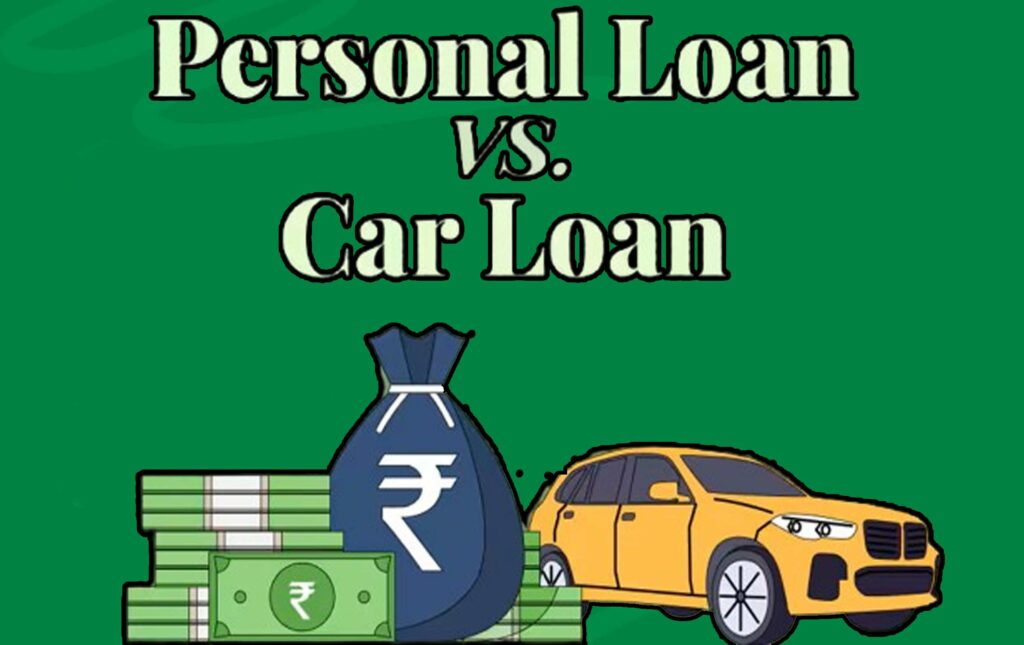Personal Loan vs. Auto Loan: What’s the Difference? Although auto loans and personal loans may seem similar, they have distinct differences. Personal loans are unsecured, meaning they do not require any collateral. If you fail to make payments, the lender cannot claim your assets or property. Additionally, personal loans are versatile and can be used for a variety of purposes, such as covering medical expenses, consolidating debt, making home improvements, or funding vacations.

In contrast, auto loans are specifically intended for purchasing vehicles and are secured by the vehicle itself. This means that if you default on payments, the lender has the right to repossess the car. In other words, while personal loans can be used for various needs, including buying a car, auto loans are limited strictly to vehicle purchases.
What is a Personal Loan?
A personal loan is a type of unsecured loan that can be used for a wide range of purposes by the borrower. People often make use of personal loans to consolidate debt at a lower interest rate, pay for home repairs, or cover car expenses. They can also make use of them for other costs, like financing a new car.
Personal loans usually have higher interest rates compared to auto loans because they are unsecured. There is no down payment required, but your lender might charge an origination fee. This origination fee can often be deducted from the loan amount, so you will have to borrow enough to cover it. For instance, if you borrow $12,000 with a $500 fee, you’ll get $11,500.
When you want to apply for a personal loan, lenders consider several factors, such as your credit score and income. Generally, a good credit score (670 or above) is mandated to qualify. Also, the lender will check your income to ensure you can afford the repayments. If you’re self-employed, you may need to provide two years of tax returns to show that you have a consistent income.
Personal Loan Pros and Cons
Personal loans are incredible financing options that have both advantages and disadvantages.
Pros
It can be used for various needs such as medical expenses, debt consolidation, and home improvements.
- Fixed interest rate
- No collateral needed.
- Fast approval process
- Debt consolidation.
- No down payment
- Less repossession risk
Cons
- Very expensive
- Origination fees
- Short repayment terms
- Creditworthiness matters.
- High interest rates.
What is an Auto Loan?
An auto loan is a secured type of loan where the purchased car serves as collateral. If you miss payments or default, the lender can seize or repossess the vehicle to recover their money.
Because the loan is secured by your car, it reduces risks for lenders, which means you usually get a lower interest rate. This can save you a lot of money over time. Just like personal loans, every auto loan lender has specific qualification criteria. Auto loans can be easier to get, especially if your credit isn’t excellent, because the car secures the loan. A credit score of 670 or higher is required for the best terms. But you might still qualify with a lower score depending on your debt-to-income ratio and down payment.
However, getting auto loans can be tricky because lenders often have restrictions on the types of vehicles they’ll finance. For instance, it might be very difficult to get a loan for an old or fixer-upper car. But if you are purchasing a new or reliable vehicle for daily use, it’s more likely that a lender will approve your loan.
Auto Loans: Pros and Cons
- Vehicle ownership
- Affordable monthly repayments
- Lower interest rates
- Secured financing
- Various loan term options
Cons
- Vehicle repossession risk
- Limited use
- Long terms will result in high interest payments.
- Financial charges can make auto loans tiring.
- May not be used for all cars.
- Down payment required.
- Required auto insurance
Personal Loan vs. Auto Loan: Which is better?
The main difference between these two is that a personal loan is unsecured while an auto loan is secured. Also, car loans are often for the single purpose of purchasing a car. It offers competitive terms and rates and can be gotten straight from the dealer shop.
Meanwhile, personal loans are more versatile, and the funds can be used for more than purchasing a vehicle. However, since there is no collateral involved, personal loans may be quite expensive due to their high interest rates.



